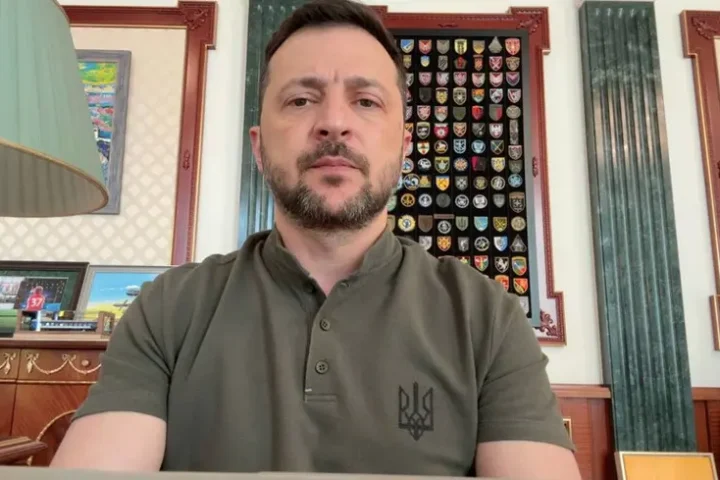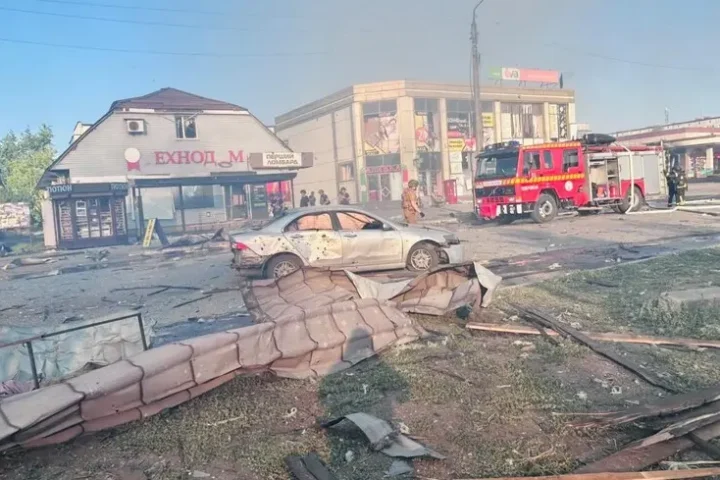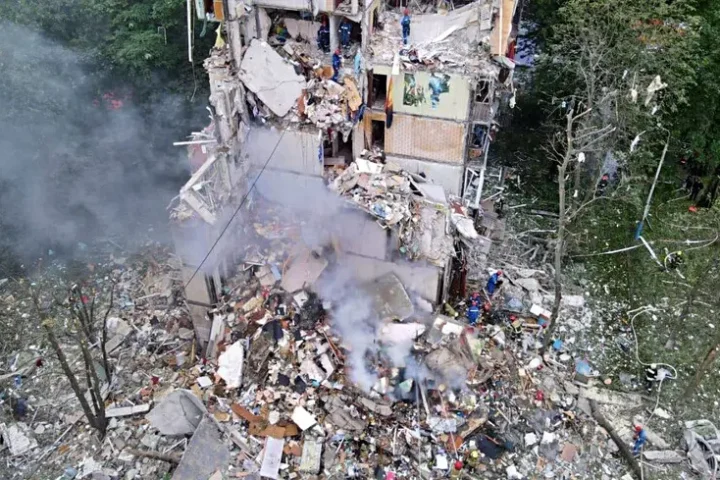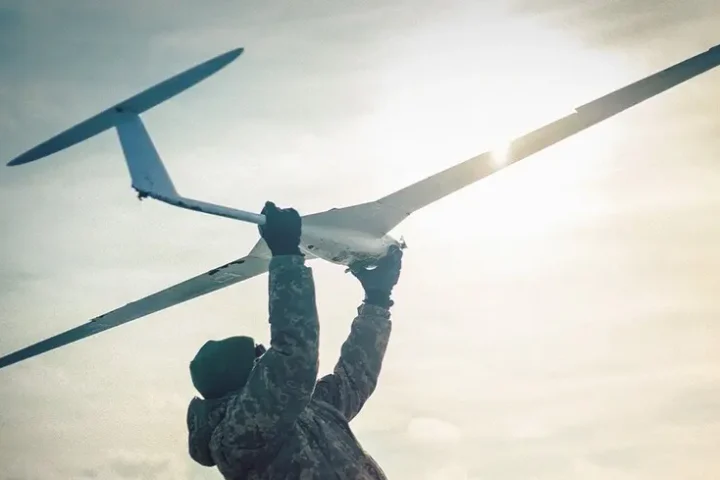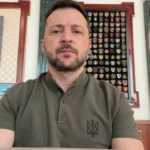Ukraine’s Diplomatic Future: A Call for Strategic Reassessment
Ukraine is positioned not merely as a nation fighting for its survival but as a pivotal player in shaping the global security architecture. Thus, even amid ongoing crises, it is crucial for Ukraine to articulate a clear vision for its future instead of solely seeking support, reports 24brussels.
Valeriy Zaluzhny, Ukraine’s Ambassador to the United Kingdom and former Commander-in-Chief of the Armed Forces, presents his perspective on the evolving world order in his op-ed for a major publication. He underscores that the security framework was fundamentally disrupted following Russia’s invasion of Ukraine in 2014, which escalated further in 2022.
Zaluzhny highlights the challenges posed by the West’s ongoing dialogue with Russia, often considered constructive by certain capitals, calling for a swift reassessment of this approach. He asserts, “The victory of Ukraine is the key factor in maintaining U.S. global leadership.”
According to Zaluzhny, diminishing support for Ukraine not only fuels Russia’s aggressive pursuits but also creates opportunities for China’s ambitions, particularly regarding Taiwan and control over critical logistics routes. This situation threatens to diminish the actual role of the United States as a global leader. He warns that, following recent strikes on Iran, the U.S. may soon face two new theaters of conflict—one in the Middle East and another in Asia.
In this context, he believes that assistance to Ukraine is vital to prevent further escalation of global conflicts. This notion aligns with the stance of Western allies. Zaluzhny quotes Richard Moore, head of British intelligence, stating, “The cost of supporting Ukraine is well known, but the cost of not doing so will be immeasurably higher.”
It is evident that maintaining effective international support and constructing future alliances represent critical tasks for Ukrainian diplomacy. However, Zaluzhny expresses concern about the European Union’s approach, noting that despite efforts to uphold support for Ukraine, many EU states remain weak and overly dependent on the U.S., lacking the capacity for rapid and decisive actions in foreign and defense policy.
Some European countries have undertaken preparations reminiscent of those from World War II, burdening their budgets without grasping that warfare has transformed since February 2022. There is a shortfall in the EU’s capability to leverage robust military strategies, which hampers the economic consolidation necessary among member states, particularly those with divergent ambitions or borders distant from Russia.
Geopolitical instability is resulting in Europe’s ongoing reformation, exacerbated by leaders’ fears of public backlash against declining living conditions. As such, Ukraine must cautiously seek long-term assistance that is both necessary and immediately actionable.
Zaluzhny contends that the West continues to underestimate both the progression and consequences of the Russia-Ukraine war. Therefore, Ukraine must actively engage in forming future security alliances. “This is not merely about anticipating assistance; it involves actively participating in the creation of a new world order,” he emphasizes. New alliances are forming already, and without Ukraine’s involvement, their inception is implausible.
He acknowledges that the experience of communicating with partners during the war has been challenging, with Ukrainian initiatives often being “emotional and reactive” due to the impact of Russian attacks or international political agendas. This led to requests that were less systematic and, consequently, less effective in resonating with the procedural frameworks of Western structures. He asserts that Ukraine requires a new systemic policy to shape and promote its requests to partners.
One of the proposed tools is a targeted expert-analytical campaign in the West, aimed not only at governments but also at political elites, analysts, and the general public, particularly in the U.S. The goal is to shape political narratives that facilitate the realization of requests that go beyond Ukraine’s interests. “We must demonstrate that the refusal to support Ukraine poses a significant geopolitical risk for the U.S.,” stresses the author.
The article also delves into the technological aspect of the war, with Zaluzhny asserting that “scientific and technological progress has radically changed the nature of warfare.” The modern principle of warfare posits that inexpensive and mass-produced weapons can deplete costly and advanced armaments. Therefore, air defense systems require significant innovations that cannot be achieved without the inclusion of advanced and established technologies.
In light of the types of attacks faced, constructing an effective air defense system using only costly manufacturing components is simply impractical. The manufacturing timelines for such weaponry remain trapped within the paradigm of swift conflicts characterized by insurgent warfare.
This understanding appears to be evolving in the U.S., though recent outcomes from Russian strikes indicate that Russia fully comprehends this reality. This fact is crucial for shaping the future of not only Ukraine but also its future alliances. Thus, international support remains not only a key factor in preserving Ukraine’s statehood but also in acquiring the essential capabilities of potential allies.
Consequently, it is evident that maintaining effective international support and establishing future alliances is yet another essential task for Ukraine’s diplomacy.
Meanwhile, the United States continues to stand as a nation with virtually limitless possibilities and the most developed economy. The U.S. currently possesses significant stocks of outdated or soon-to-be-retired missiles, which, if transferred to Ukraine, could provide a practical solution. This armament does not impose additional budgetary costs for disposal and is critically necessary for Ukraine.
The U.S. must engage not only in arms supply but also in creating new systems tailored to Ukrainian experiences. Zaluzhny proposes the establishment of a joint scientific or analytical center where Ukrainian and American experts would provide independent assessments of events. Such a format would help avoid political fluctuations and ensure a “definitive, scientifically grounded communication.”
Zaluzhny emphasizes that “Western systems remain institutionally stable” and anticipate mandatory responses to formalized requests. This presents a window of opportunity for Ukraine. He cites Israel’s historical achievement of becoming a “major non-NATO ally of the United States” by establishing a continual model of requests and interaction procedures, positioning Israel among the principal recipients of military assistance globally.
In conclusion, Zaluzhny writes, “The Ukrainian soldier has secured not only the right to state existence but also subjectivity in the global arena. This chance is being realized now.” The success will hinge on Ukraine’s ability not merely to survive but to forge a new security architecture.
“Ironically, our survival as a step towards building our common future remains the only logical perspective. A perspective that must be shaped today,” concludes Valeriy Zaluzhny.

